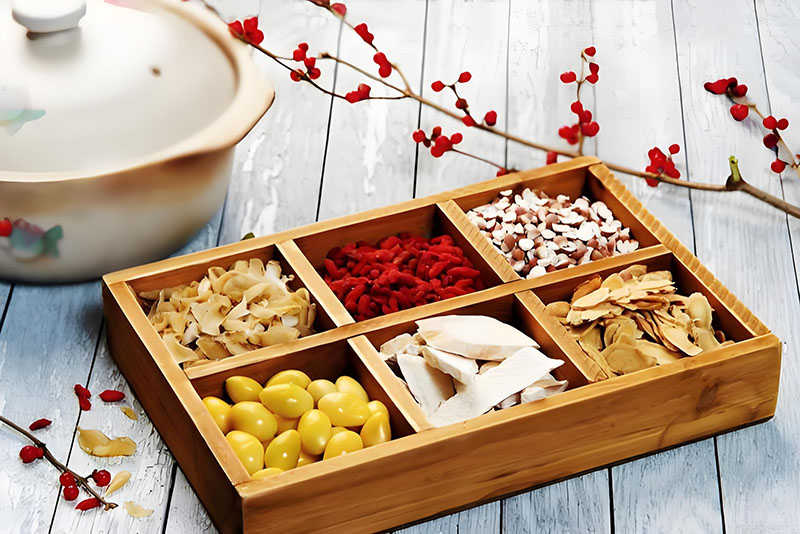
Diet, medicinal diet as a more and more popular concept appeared in people’s cognition, more and more by the general public’s favorite.
The medicinal diet is not simply food and Chinese medicine, but in traditional Chinese medicine “diagnosis and treatment” under the guidance of the Chinese medicine and medicinal value of food matching, and then made of food. The medicinal diet is to take the nature of the drug and the flavor of the food, “medicine by food, food to help medicine,” complement each other. After consuming it, it can not only obtain nutrition to satiate the stomach, but also nourish health care and prevent diseases, which is a medicinal food with therapeutic and health care effects.
The medicinal diet is a specific manifestation of the “medicine and food are from the same source” that has always been advocated by Chinese medicine. When you eat medicinal food, you are not only enjoying food, but also nourishing your body. The preparation of medicinal food is also very delicate, and can be said to be an art. For example, nowadays, dumplings, I think many people have heard of its story. During the Han Dynasty, when the weather was cold and people were freezing their ears, Zhang Zhongjing made a kind of food to keep people’s bodies warm, putting herbs that can activate the blood circulation and keep people warm, together with food, into the dough and wrapping it into the shape of an ear, which was named “Jiao Er”. In later times, the name “Jiao Er” gradually evolved into “Dumpling”.
Although the medicinal food is delicious, good for the body, but in the consumption of time or have some caution. Because the medicinal food is belong to the scope of Chinese medicine, so and Chinese medicine, each has its own flavor, there are contraindications. Only delicious and safe medicinal meals can bring out the desired effect of the consumer.
The contraindications of medicinal diets also follow the basic contraindications of traditional Chinese medicine, the “eighteen contraindications” and the “nineteen fears”. “Eighteen against” is ‘the Materia Medica explicitly said eighteen against, half Piper betel amber and attacked Wu, algae halberd Sui coriander all war grass, all ginseng Xin peony rebel quinoa’. Half-sia, guayu, beimu, baiyun, bletilla and aconite (including epiphyllum) are opposite to the aconite. Seaweed, halberd, glycyrrhiza, and coriander are all at odds with licorice. The “nineteen fears” are sulphur fearing nitrous oxide, mercury fearing arsenic, wolfsbane fearing mitochondria, croton fearing petunia, cloves fearing tulip gold, toothpaste fearing sanleng, Chuanwu and Caowu fearing rhinoceros horn, ginseng fearing wulin, and cinnamon fearing chrysoprase.
You should also pay attention to avoiding food when eating medicinal food. Avoid eating food that may induce disease or prolong the course of the disease, mainly divided into 3 categories of taboos.
1, physical contraindications: deficiency avoid dispersal, diarrhea; body should not be too strong complementary; Yang deficiency avoid salty cold; Yin deficiency avoid spicy hot.
2, disease taboos: liver disease taboo pungent; lung disease taboo bitter, heart and kidney taboo salty; spleen and stomach taboo sweet and sour; bile disease taboo greasy; epilepsy allergy, tic taboo hair. Hot disease avoid using hot products; cold disease avoid using salty cold things; blood loss, pregnant women avoid using blood products.
3, medication food: sweating medicine avoid acidic and cold food; tonic medicine avoid tea, radish, winter melon, watermelon and other diuretic food.
Although the medicinal food is good, but can not be eaten at random, when consumed need to pay attention to a lot of problems, ignoring the medicinal nature of the medicinal food and simply regard it as food is obviously also very unwise.
